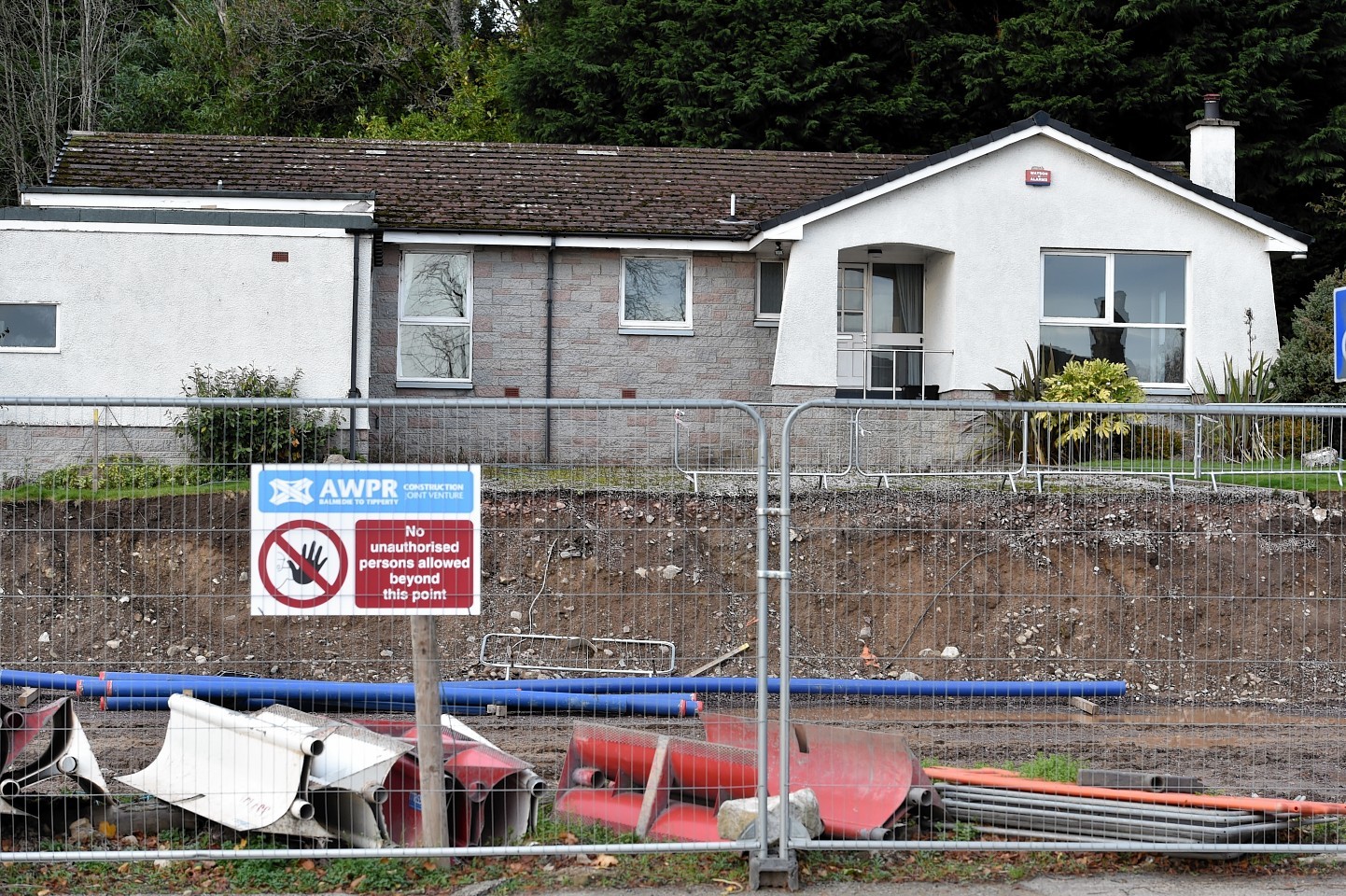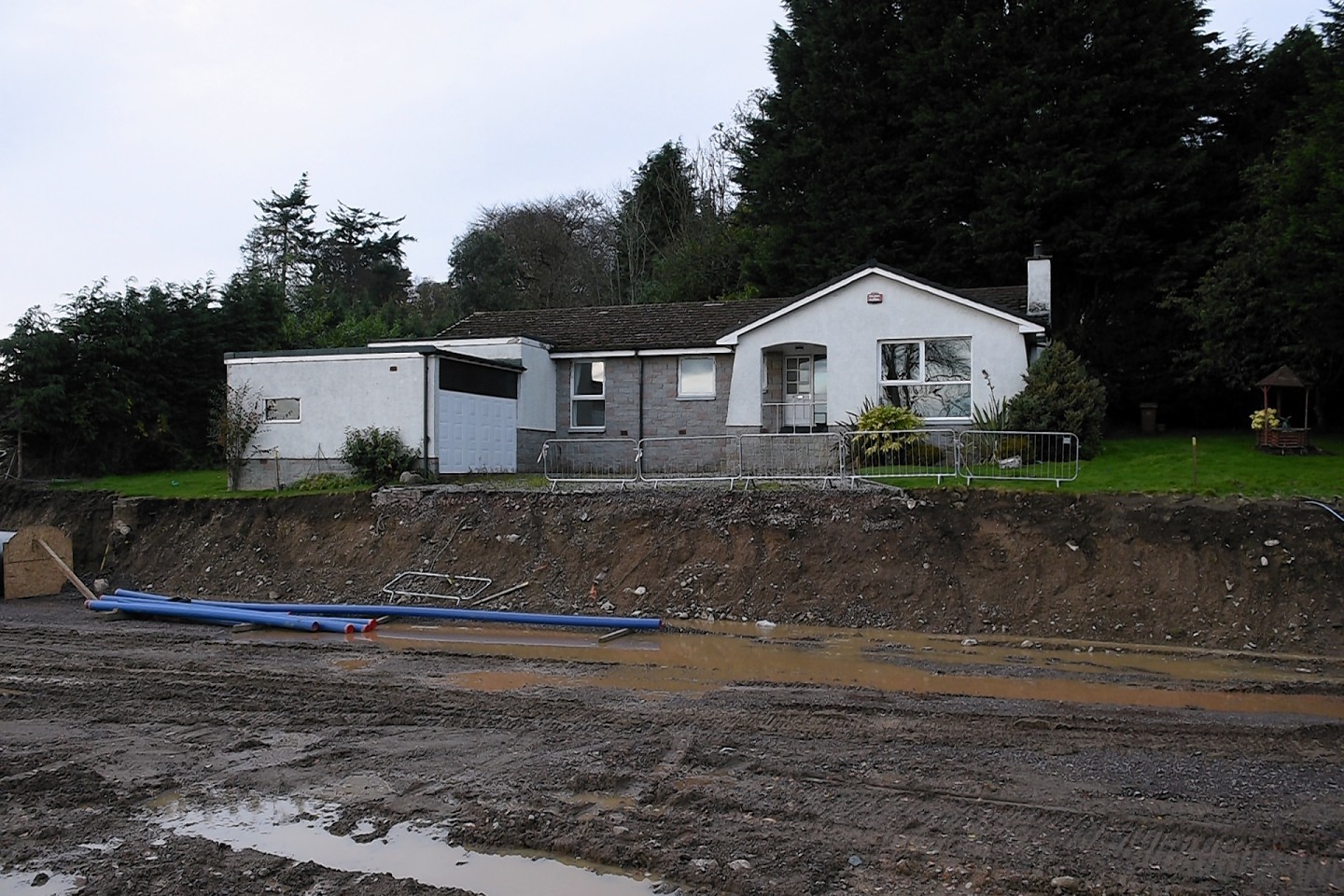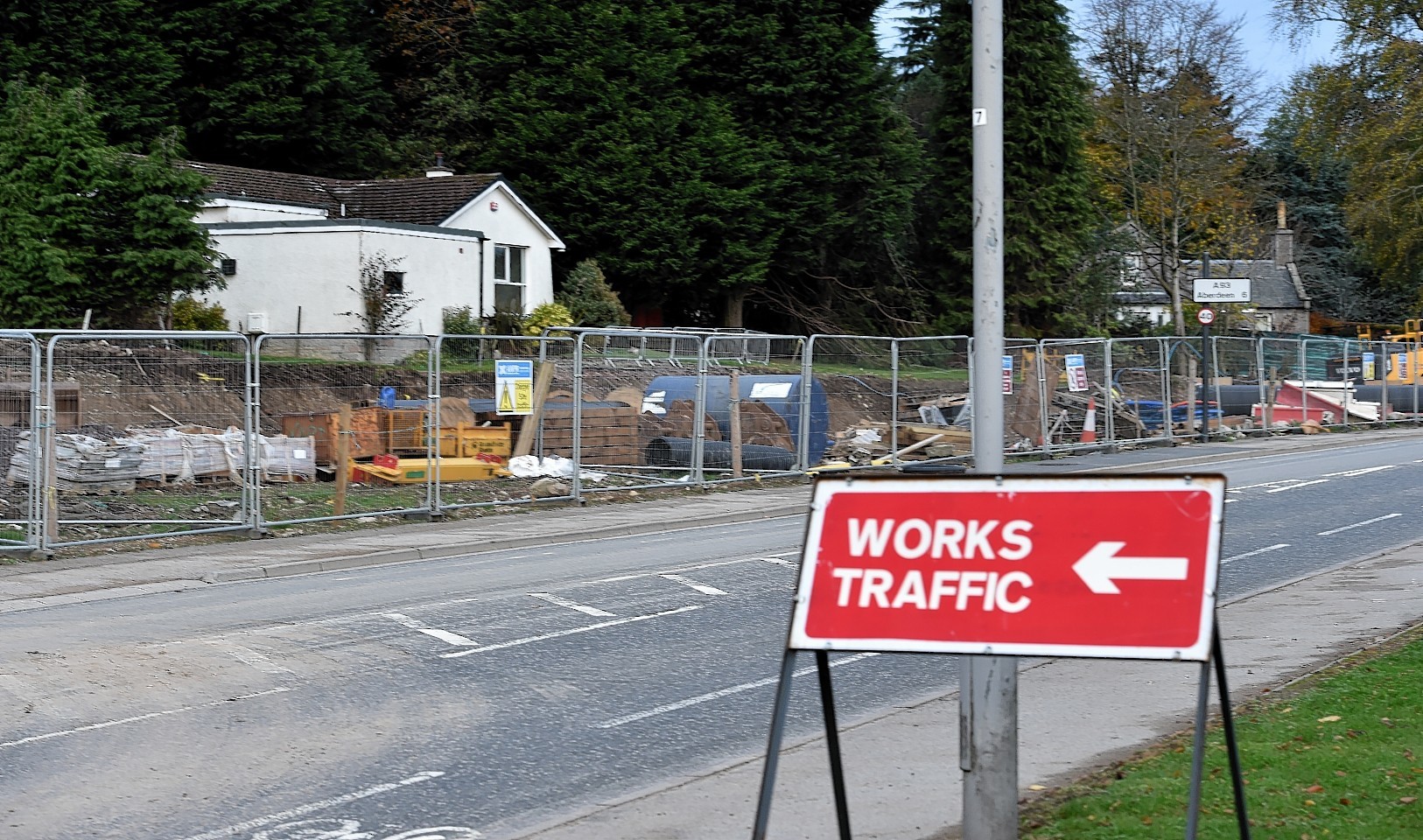These images show just how close the long-awaited Aberdeen bypass has come to homes in its path.
Less than a year into the construction of the project, major progress has already been made across large portions of the 36-mile route.
One of the most visible portions of the route is at Milltimber, where huge chunks of land have already been razed in preparation just north of where motorists will cross the River Dee.
This bungalow – which is now almost entirely surrounded by groundwork for the bypass – was purchased by Transport Scotland through an agreement, with no compulsory purchase order (CPO) required, in 2010.
And last night the previous owner admitted he was relieved he and his wife sold up after seeing the road take shape through his garden.
The man, who did not want to be named, said the road was “practically at the front door of the house” he lived in for 10 years and said: “They weren’t even going to touch my land originally, that was the plan.
“This isn’t a case of not in my back yard, I just think they had better routes they could have gone with.
“We wanted to sell it, because I knew I didn’t want to live next to, well, what I could have been living next to.”
The Aberdeen Western Peripheral Route will be one of the biggest transport developments in Scotland’s history.
It will link with the A90 south of the city at Stonehaven and Charleston, and north at Blackdog.
A key stretch of the bypass is being built on the A93 at Milltimber, with works including the construction of a bridge and a signal-controlled junction with the B979.
The former bungalow owner added: “I’m surprised they haven’t actually knocked that house down.
“I walked around it just before they closed off the entrance, and obviously the heating hadn’t been on for ages, it was damp. I’m really surprised it hasn’t been knocked down or used as an office.
“I’ve got nothing against the AWPR of course, Aberdeen badly needs it.”
Transport Scotland has confirmed that no decision has been taken on the future of the property.
After being in the pipeline for more than 30 years, the £745million bypass project finally began construction earlier this year, and is due for completion by the end of 2017 – six months ahead of schedule.


